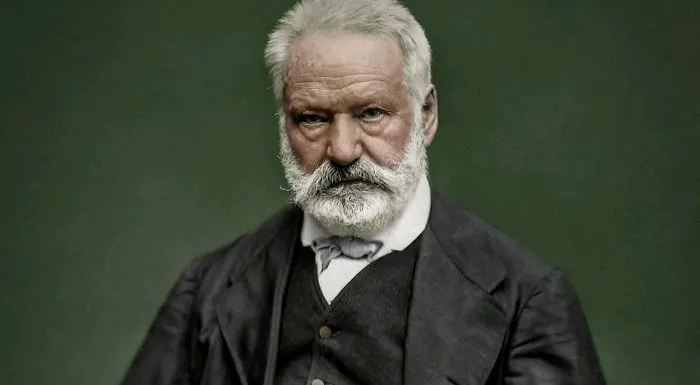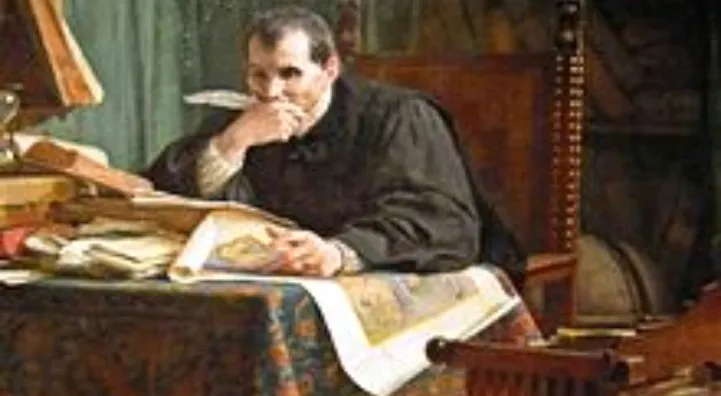Victor Hugo: Las Ideas Que Mueven al Mundo / Victor Hugo: The Ideas That Move the World
Victor Hugo: Las Ideas Que Mueven al Mundo (Spanish version)
Victor Hugo nació en Besançon, Francia, en 1802, en el seno de una familia militar bonapartista. Desde pequeño, demostró una gran sensibilidad artística y una precoz inclinación hacia la literatura. Su infancia estuvo marcada por los viajes y los cambios de residencia, lo que le permitió conocer diferentes realidades sociales y culturales.
A lo largo de su vida, Hugo se convirtió en una figura clave del Romanticismo francés, movimiento que defendía la libertad de expresión, la primacía del individuo y la importancia de la emoción en el arte. Su obra, prolífica y diversa, abarcó la poesía, la novela, el teatro y el ensayo.
Entre sus obras más famosas se encuentran "Los Miserables", una novela épica que narra la historia de Jean Valjean, un exconvicto que busca la redención; "Nuestra Señora de París", una novela gótica ambientada en la catedral de Notre Dame; y "Las Contemplaciones", un poemario íntimo y reflexivo sobre la vida, la muerte y el amor.
Más allá de su talento literario, Hugo fue un hombre comprometido con su época. Se involucró activamente en la política, defendiendo la libertad y la justicia social. Durante el Segundo Imperio Francés, fue exiliado por sus ideas republicanas.
Sin embargo, su voz no se silenció. Desde el exilio, continuó escribiendo y denunciando las injusticias del régimen. Su obra se convirtió en un símbolo de resistencia y esperanza para muchos.
A lo largo de su vida, Victor Hugo mantuvo una profunda convicción: las ideas son el motor del cambio. No son las máquinas ni las fuerzas materiales las que determinan el curso de la historia, sino las ideas que las personas albergan en su mente y en su corazón.
Esta creencia se refleja en toda su obra, desde sus poemas más líricos hasta sus novelas más combativas. Hugo creía que las ideas tienen el poder de transformar el mundo, de despertar la conciencia y de inspirar a las personas a luchar por un futuro mejor.
El legado de Victor Hugo sigue vivo hoy en día. Su obra continúa siendo leída y admirada por millones de personas en todo el mundo. Sus ideas sobre la libertad, la justicia y la importancia del arte siguen siendo relevantes en un mundo que aún enfrenta muchos desafíos.
Victor Hugo nos recuerda que las ideas son el arma más poderosa que tenemos para construir un mundo más justo y equitativo.
Victor Hugo: The Ideas That Move the World (English version)
Victor Hugo was born in Besançon, France, in 1802, into a Bonapartist military family. From an early age, he showed great artistic sensitivity and a precocious inclination towards literature. His childhood was marked by travel and changes of residence, which allowed him to get to know different social and cultural realities.
Throughout his life, Hugo became a key figure in French Romanticism, a movement that defended freedom of expression, the primacy of the individual and the importance of emotion in art. His prolific and diverse work encompassed poetry, novels, plays and essays.
Among his most famous works are "Les Misérables", an epic novel that tells the story of Jean Valjean, an ex-convict who seeks redemption; "The Hunchback of Notre Dame", a gothic novel set in the cathedral of Notre Dame; and "Les Contemplations", an intimate and reflective poem book about life, death and love.
Beyond his literary talent, Hugo was a man committed to his time. He actively involved himself in politics, defending freedom and social justice. During the Second French Empire, he was exiled for his republican ideas.
However, his voice was not silenced. From exile, he continued to write and denounce the injustices of the regime. His work became a symbol of resistance and hope for many.
Throughout his life, Victor Hugo held a deep conviction: ideas are the driving force behind change. It is not machines or material forces that determine the course of history, but the ideas that people hold in their minds and hearts.
This belief is reflected throughout his work, from his most lyrical poems to his most combative novels. Hugo believed that ideas have the power to transform the world, to awaken consciousness and to inspire people to fight for a better future.
Victor Hugo's legacy lives on today. His work continues to be read and admired by millions of people around the world. His ideas about freedom, justice and the importance of art are still relevant in a world that still faces many challenges.
Victor Hugo reminds us that ideas are the most powerful weapon we have to build a more just and equitable world.
© Roberto R. Díaz Blanco
Victor Hugo nació en Besançon, Francia, en 1802, en el seno de una familia militar bonapartista. Desde pequeño, demostró una gran sensibilidad artística y una precoz inclinación hacia la literatura. Su infancia estuvo marcada por los viajes y los cambios de residencia, lo que le permitió conocer diferentes realidades sociales y culturales.
A lo largo de su vida, Hugo se convirtió en una figura clave del Romanticismo francés, movimiento que defendía la libertad de expresión, la primacía del individuo y la importancia de la emoción en el arte. Su obra, prolífica y diversa, abarcó la poesía, la novela, el teatro y el ensayo.
Entre sus obras más famosas se encuentran "Los Miserables", una novela épica que narra la historia de Jean Valjean, un exconvicto que busca la redención; "Nuestra Señora de París", una novela gótica ambientada en la catedral de Notre Dame; y "Las Contemplaciones", un poemario íntimo y reflexivo sobre la vida, la muerte y el amor.
Más allá de su talento literario, Hugo fue un hombre comprometido con su época. Se involucró activamente en la política, defendiendo la libertad y la justicia social. Durante el Segundo Imperio Francés, fue exiliado por sus ideas republicanas.
Sin embargo, su voz no se silenció. Desde el exilio, continuó escribiendo y denunciando las injusticias del régimen. Su obra se convirtió en un símbolo de resistencia y esperanza para muchos.
A lo largo de su vida, Victor Hugo mantuvo una profunda convicción: las ideas son el motor del cambio. No son las máquinas ni las fuerzas materiales las que determinan el curso de la historia, sino las ideas que las personas albergan en su mente y en su corazón.
Esta creencia se refleja en toda su obra, desde sus poemas más líricos hasta sus novelas más combativas. Hugo creía que las ideas tienen el poder de transformar el mundo, de despertar la conciencia y de inspirar a las personas a luchar por un futuro mejor.
El legado de Victor Hugo sigue vivo hoy en día. Su obra continúa siendo leída y admirada por millones de personas en todo el mundo. Sus ideas sobre la libertad, la justicia y la importancia del arte siguen siendo relevantes en un mundo que aún enfrenta muchos desafíos.
Victor Hugo nos recuerda que las ideas son el arma más poderosa que tenemos para construir un mundo más justo y equitativo.
Victor Hugo: The Ideas That Move the World (English version)
Victor Hugo was born in Besançon, France, in 1802, into a Bonapartist military family. From an early age, he showed great artistic sensitivity and a precocious inclination towards literature. His childhood was marked by travel and changes of residence, which allowed him to get to know different social and cultural realities.
Throughout his life, Hugo became a key figure in French Romanticism, a movement that defended freedom of expression, the primacy of the individual and the importance of emotion in art. His prolific and diverse work encompassed poetry, novels, plays and essays.
Among his most famous works are "Les Misérables", an epic novel that tells the story of Jean Valjean, an ex-convict who seeks redemption; "The Hunchback of Notre Dame", a gothic novel set in the cathedral of Notre Dame; and "Les Contemplations", an intimate and reflective poem book about life, death and love.
Beyond his literary talent, Hugo was a man committed to his time. He actively involved himself in politics, defending freedom and social justice. During the Second French Empire, he was exiled for his republican ideas.
However, his voice was not silenced. From exile, he continued to write and denounce the injustices of the regime. His work became a symbol of resistance and hope for many.
Throughout his life, Victor Hugo held a deep conviction: ideas are the driving force behind change. It is not machines or material forces that determine the course of history, but the ideas that people hold in their minds and hearts.
This belief is reflected throughout his work, from his most lyrical poems to his most combative novels. Hugo believed that ideas have the power to transform the world, to awaken consciousness and to inspire people to fight for a better future.
Victor Hugo's legacy lives on today. His work continues to be read and admired by millions of people around the world. His ideas about freedom, justice and the importance of art are still relevant in a world that still faces many challenges.
Victor Hugo reminds us that ideas are the most powerful weapon we have to build a more just and equitable world.
© Roberto R. Díaz Blanco
Related Stories






